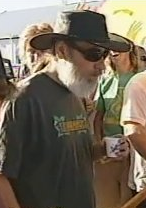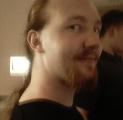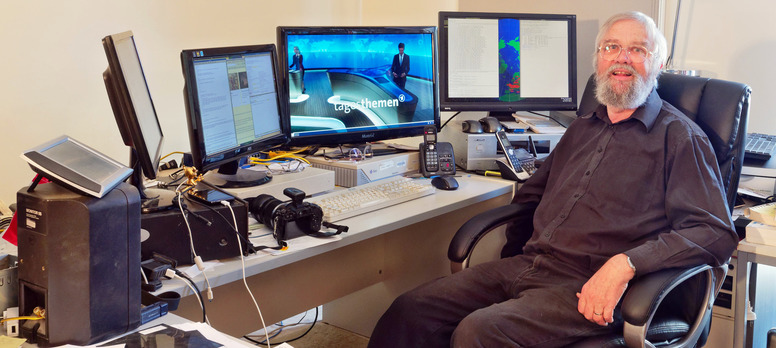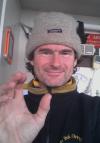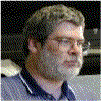BUGS Members
a
b
Sue Blake was one of the founding members of BUGS and passed away from cancer early on 2010-Dec-17. She will be sadly missed. Sue was a sysadmin, sometimes adult educator and researcher, who ran FreeBSD on Intels and dabbled with BSD systems on Macintosh hardware and worked with that commercial unix which changes its company almost as often as its name. Sue lived in Darkinjung country near Sydney with her pet galah named Taffy, a huntsman and a couple of dozen redback spiders, where she enjoyed building BSD servers out of old cast off hardware in the slack time between tricyle riding and crochet engineering projects.
Basil C P Borun is a semi-retired computer nerd who runs his own boutique hosting company. After dabbling with Solaris and Linux for a few years, Basil had to make a decision as to the OS he would trust on his hosting infrastructure. Having originally learnt 'UNIX' in its BSD guise, he fell back into his comfort zone and now relies on FreeBSD to ensure the availability, reliability and security of his customers' hosted environments. Personally, he prefers and uses Macintosh hardware – that is, Mac OS X.
Basil lives in Bankstown, NSW (Sydney) with his two cats, an SHDSL and cable broadband links, as well as ten servers.
Rob Byrnes - a hobbyist user of FreeBSD since he became disillusioned with Linux on a DEC Alpha PWS back in 1998. His day job as a network engineer has nothing to do with *BSD - for better or worse 
c
Alexander Cox is a nearly employed FreeBSD user. First used FreeBSD at 8.0 when dissatisfied with Linux. Started using Linux in 2005. Now uses FreeBSD 9.0. He lives in Bungendore NSW and can be occasionally found idling as alexc on IRC.
d
Chuck Dale's first experience with FreeBSD was at an ISP where he worked for a year. Chuck knew very little about UNIX and networking in general (even though he thought he did). He had been fiddling around with Linux for the previous two years or so but hadn't taken the time to understand the system well.
Chuck has not used BSD for a while since he quit the ISP. He's kept up with FreeBSD developments now and then - he bought a 3.2 CD but never got to actually installing it. What really sparked Chuck's reinterest in BSD was OpenBSD. He had never really investigated it but after reading a few interviews recently decided to check it out. And he *really* liked what he saw.
Chuck currently uses Linux on a number of boxes but is excited to switch some of them over to OpenBSD. Especially the gateway boxes.
David Dawes is running various versions of FreeBSD (2.2.8, 3.x, 4.0), and has been running BSD since 386BSD. He is a core team member and President of The XFree86 Project, and has been working on the new X server architecture for XFree86 4.0. David maintains Australian mirrors of the FreeBSD web, cvsup and ftp sites on a Pentium II 350 running FreeBSD 3.2. He works for the University of Sydney as a network admin in the Physics department.
e
f
Andy Farkas (aka. chuzz) has been using FreeBSD since version 2.0 and has continued to contribute to the project via mailing-lists, bug reports, and IRC. He uses FreeBSD (also NetBSD) as much as possible in the work-place and at home. Currently living in Bundaberg Queensland, and working in I.T. support for the small businesses around town, country life is the way to go. Previous employment includes Your Computer magazine, MicroBee, Hypertec, and speednet.com.au (a dialup ISP and web-host).
Hobbies: Coopers.
g
Callum Gibson is a software developer for Deutsche Bank and is married with 4 live-at-home children. He's been using Unix since 1986 when it was introduced to the University of New England where he attended. After working as a C programmer for a number of years, he finally bought his first PC in 1992 and installed 386bsd 0.1. Since then he's also used NetBSD, OpenBSD and currently uses FreeBSD at home and at work.
h
Sean Hall has been using FreeBSD and NetBSD since 1998, and playing with various Linux distributions since the mid-90s. He is a System Administator and looks (or has looked after), Solaris, Linux, AIX, Tru64 and SCO. In his spare time (???), Sean enjoys spending time with his wife and two children, programming, running and riding motorbikes far too quickly.
i
I'm a Linux/BSD admin, seasoned web dev, and devops. I speak Arabic, English and French.
I was a high school teacher who, in a pathetic attempt to keep my year 10 students involved near the end of the school year, started teaching html authoring. Not having much money for software, I ended up installing FreeBSD 2.1 and Apache as the webserver for my students.
Unix was not entirely new to me - in the mid 1980s when I was completing an engineering degree I used Unix on a Perkin Elmer mini to do signal processing of track recording data.
I'm now working as a University sysadmin. I get a lot more respect now than I ever did as a teacher from those further up the food chain, but I do kind of miss the cut and thrust of the classroom :)
I spend most of my time working with Solaris, however I am gradually installing a few FreeBSD boxes as webservers, and OpenBSD boxes as gateways and firewalls.
j
 Peter Jeremy has been playing with computers for nearly 50 years - initially on IBM mainframes.
By doing his degree at NSWIT (now UTS), he managed to miss out on Unix until 1986.
Since then, he's managed to mostly avoid anything other than Unix (Xenix/286, SunOS 4.x, Motorola SVR3, BSD/OS, FreeBSD 2.x through 13.x, HP (nee Compaq) Tru64 (nee Digital Unix (nee OSF/1)), Linux and Solaris 2.5 through 10), with a sidetrack into AmigaDOS.
After completing a life sentence at Alcatel-Lucent, he now works as a SRE at Google.
Outside work, he hacks FreeBSD and occasionally manages to spend some time with his wife.
Peter has an amateur radio license (VK2PJ), but is virtually inactive.
Peter Jeremy has been playing with computers for nearly 50 years - initially on IBM mainframes.
By doing his degree at NSWIT (now UTS), he managed to miss out on Unix until 1986.
Since then, he's managed to mostly avoid anything other than Unix (Xenix/286, SunOS 4.x, Motorola SVR3, BSD/OS, FreeBSD 2.x through 13.x, HP (nee Compaq) Tru64 (nee Digital Unix (nee OSF/1)), Linux and Solaris 2.5 through 10), with a sidetrack into AmigaDOS.
After completing a life sentence at Alcatel-Lucent, he now works as a SRE at Google.
Outside work, he hacks FreeBSD and occasionally manages to spend some time with his wife.
Peter has an amateur radio license (VK2PJ), but is virtually inactive.
k
I first started using BSD about 3 years ago, when I was introduced to it by the senior security admin @ my work, having long being disgusted with the zealots of that other open source OS. I am now a full time consultant looking for long term employment and use FreeBSD daily on approximately 10 PCs in my living room alone (much to the disgust of my fiance). The happiest day in my life after being told my Fiance is pregnant was when Opera was ported to BSD :)
I used to work with Peter Jeremy at Alcatel-Lucent as a tech.
I've encountered FreeBSD in 2006 and found the ports system to be impressive.
My other hobbies/current interests:
spearfishing (Safe, Selective, Sustainable)
table tennis (No, I don't call it “ping pong” but my wife thinks it's a geek sports)
getting hit by squash balls
facebook
l
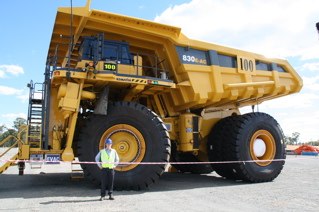 Sam started on FreeBSD some time around 1998. Becoming a ports committer in April 2005 provided an excellent tool for avoiding university assignments. Regardless, he managed to finish his degree in 2007 and is now employed in the dirt digging industry while studying for another piece of paper related to digging up dirt.
Sam started on FreeBSD some time around 1998. Becoming a ports committer in April 2005 provided an excellent tool for avoiding university assignments. Regardless, he managed to finish his degree in 2007 and is now employed in the dirt digging industry while studying for another piece of paper related to digging up dirt.
Mostly runs OS X.
Greg is an old fart who passed from adolescence to senility without ever touching adulthood. He breaks all the rules, including not living in Sinny, and has chosen voluntary retirement rather than working for companies which he thinks are taking computing in the wrong direction. GUIs indeed!
Greg is the prototypical has-been. In his time he has been:
- The president of AUUG, the Australian UNIX User Group.
- A member of the FreeBSD Core team
- The principal developer of the Vinum Volume Manager.
- A developer (committer) in the NetBSD project.
- A member of the management board of the ICT Council for South Australia, representing AUUG.
He's not completely spent yet. He still is:
- A developer (committer) in the FreeBSD project.
- A member of the advisory board for the BSD Certification Group
He also confesses to have written Linux kernel code.
He lives in Dereel, Victoria, along with his cats, his horses, his old computers, his memories and his wife.
Bart is a sys-admin and developer for a GIS firm specialising in
hydrographic information technology (think water, maps and electronic
navigation).
He has converted the company's operations centre from
Solaris to FreeBSD in 2002/2003 after Sun changed their Intel Solaris
licensing.
FreeBSD servers and workstations are updating and
publishing Australia's official maritime electronic and paper charts
for commercial and Naval shipping 
Bart's first encounter with the world of UNIX was by way of modifying the Minix kernel for computer assignments at Uni and he has been wrapped up in UNIX ever since. His first exposure to FreeBSD was release 2.2.5. Apart from FreeBSD, still involved with Solaris as well as Linux and Tru64. Bart is an avid XEmacs advocate.
m
Hamish Maple is currently the Network Administrator for the Anglican Church, Diocese of Sydney.
His background is in the printing trade, however, he's had an interest in computers since buying an Apple 2e back in 1983. About 6 years ago Hamish decided on a career change and thought networking would be fun (inspired partly by Sentry BBS and FidoNet! Hmmm?). He currently looks after a whole bunch of Cisco network gear and about 20 WinNT, SCO and Linux servers.
Hamish was introduced to Linux about 4 years ago and has used both Slakware and RedHat in production environments. The church currently runs Linux production servers for DNS, mail and proxy supporting a few hundred users. Unfortunately, their web servers are WinNT/IIS boxes to run ASP and MS-SQL. File and Print is handled by NT and the BIG databases run on SCO.
Hamish has FreeBSD3.3 with iBCS installed on his trusty old Compaq ProSignia (486DX2-66) server at home which is running a copy of work's Universe database. Surprisingly (or maybe not), the setup at home is more reliable than the production server at work.
Andrew McRae http://www.employees.org/~amcrae has been running FreeBSD ever since it was around, starting with 386BSD 0.0. He did the PC-Card support for FreeBSD, and is active in AUUG and a current director of ISOC-AU. Andrew works for Cisco Systems, writing code and designing new routers.
John became acquainted with FreeBSD in 2002 after giving up a cosy contracting position as a VMS guru at [DCH][EP][CQ] where he also played with Tru64 UNIX. Prior to John's VMS days, he spent several years with Perkin Elmer's OS/32 - apart from a bit of CP/M.
John hasn't done any programming on FreeBSD. His programming experience on VMS and OS/32 was mostly confined to assemblers (and macro assemblers) because his employer wouldn't fork out for any compilers!
In the days BC (Before Computers) John worked as a Radio Tradesman in the avionics industry. John remembers fondly a commodity called, “Spare Time”. He hasn't been able to find any of it since becoming involved with computers in the early '80's, but used to devote it to music (yes, the Highland Bagpipe is a musical instrument) and amateur radio (VK2EGI).
During 2016, after only 22 years' struggle, John gave up trying to argue with burnout and took up casual work as a traffic controller.
Jonathan Michaels has been using UNIX for around 25 years as a systems analyst and business analyst. He started with Microware OS9, and has since used QNX, MS-DOS with Novell Netware v3.11 and v3.12, OS/2, and now uses FreeBSD. Jonathan drives a 1978 teal blue Ford Fairlane and spends his days as a niche/specialist turnkey intranet developer and running caamora.com.au with his trained attack teddy bears.
n
Andy Newman is a Software person (sometimes called an architect but I prefer hacker). Up until very recently he worked for Canon in their R&D centre doing, well, R&D. Now Andy works for a company called Silverbrook Research (he can't say what he does, it involves computers though). Before Canon Andy worked at a company called Integrated Arts which went belly up but served as the start of the Canon R&D centre. He wrote multi-processor OS's and associated gumpf at Integrated Arts and also graphics related things. Andy did similar things at Canon but only had a single processor to play with, got to design and write a TCP/IP implementation, lots of fun (Hello Andrew ;)).
Andy's been using Unix systems since the early 1980s, mostly BSD derived, and has been running FreeBSD for the last five years or so. Lots of SunOS and NeXTSTEP prior to that, with a dash of HP-UX and a load of Solaris thrown in for good measure.
He got stuck with Linux (RedHat) at Canon for quite a while as various Linux proponents work there (Ken Yap is one if you're familiar with SLUG). Andy prefers BSD as its a little more polished, a more coherent system and the people behind it seem more mature and old-school Unix types.
Andy is also involved with Tim Long's ici programming language - see http://www.zeta.org.au/~atrn/ici/ - Tim works at CISRA (Canon Information Systems Research Australia). Give ici a look if you want C-like interpretive language. It's not bad and has a BSD connection Tim got an award from USENIX for his work on BSD in the 1980s (the first USENIX lifetime achievement award went to the CSRG and associated peoples, Tim was one of them).
Oh, and Andy owns a beastie doll. And a mug, and a mouse pad… (have to help out somehow).
o
p
Andrew Perry: sysadmin for a small council on the south coast. while predominantly a microsoft site i usually have at least 1 or 2 FreeBSD boxes because sometimes there is just some things that you can't do without an operating system that comes with built in useful tools. my boss said we should have a few of our guys more familiar with open source stuff, so i thought that if there is the vaguest chance we're going to introduce any open source operating systems into my workplace, i'm gonna make sure it's FreeBSD.
first introduced to FreeBSD with version 2.1.6 in 1997 while moonlighting with a small isp.
Jordan Pitt is currently a UNIX systems programmer for a NSW ISP and a uni student doing B. Computer Science. He has about 4 years experience programming systems applications/daemons and administrating UNIX systems of various flavours, but mostly GNU/Linux systems. Jordan's introduction to the world of UNIX was a BSDi server; this is where his affection for the BSD system started. Jordan's currently using OpenBSD, as he's a little less than impressed with the direction/characteristics of many free UNIX distributions these days. He also knows someone in the OpenBSD development team that threw some cds my way.
Jerahmy is a freelance programmer working on computer games projects in his spare time (hopefully one day they will pay him to do it), with a background in network design and administration. He was fed up with the messiness of linux some time in the 90's and found salvation in FreeBSD 3.5, having never looked back he advocates the use of BSD systems to meet business needs and uses them extensively in many solutions.
Jerahmy can be found posting on various mailing lists (apple-dev, bugs, freebsd, etc) and asks a lot more questions than he answers, but is always first to give an opinion on something. He currently accepts any software or network related work that people will give him money for* and is trying to build up a client base. (*Note: He will not get out of bed for less than $25/hr, higher for one off jobs unless they are exciting)
Jerahmy's name really does have an 'h' in it, the 'h' was depreciated in the previous version but has now returned for legacy reasons and shall stay. He currently uses OSX on a G4 for his desktop and two more FreeBSD systems on various intel cpus. He uses an intel MacBook when onsite/traveling.
q
r
Andrew Reilly's first encounter with Unix in any form was rogue or something similar, in vacation school, circa 1982.
He first met BSD as an undergrad at the University of Queensland: Ultrix on a cluster of MicroVax-en in CS and an elderly VAX 780 in the EE department, both in about 1985. Subsequent BSD systems were Sun-3 workstations, Sony MIPS workstations, and Sun-4 boxes.
Andrew first started admining for his post-grad research group on it's Ultrix MicroVax, before commissioning a Sony-3860 system to run a pool of X terminals (mostly NCD at first, but replaced with Labtam later). The group moved to QUT and grew to about 20 or so. The Sony box was augmented with a multi-processor Sun box, and then another. Towards 1993 or '94 Andrew set up his first 386BSD system, to play with, and use as an X-terminal. Before he graduated in '94 that box had been upgraded to NetBSD-0.9, with local root and swap on it's 40M disk, everything else NFS mounted from the Sun.
Andrew avoided buying his own PC until he could afford one that was at least as powerful as the Sony or Sun boxes he'd had at Uni. That turned out to be a Pentium-120. It ran FreeBSD. He currently has a Pentium-III box running FreeBSD for most of his work, but has another system to run NT, for those things that he needs for work that Wine isn't up to yet. It's remarkable what a qualitative difference that extra factor of 10 or so in speed makes, and how quickly one gets used to it…
s
I am new to FreeBSD having worked on it for about a year now and only as a systems administrator. I have worked as a systems administrator most of my career and primarily with Microsoft products.
I have achieved the following certifications: MCSE+I, CCNA, A+ and a bachelors degree in Computer Science and Information Systems.
I am from Fiji and have only been in Sydney for about 2 years.
The more I
stay here the more I want to go back to the sandy beaches…

Andrew Sinclair spent the better half of his HSC years studying FreeBSD from 2.2.5-RELEASE onward. Topics of interest included Network Appliances and Windows integration/migration. He may be too young to have real character but has an exceptional track record with each of his previous employers.
My fellow Australians, it pays to be a nerd.
Justin Smith I take pride in compiling useless crap & adding my bits to global warming. Like multi-booting and Security. Lately, I've been bringing rain to california.
t
u
v
Christopher Vance has been a Senior Software Engineer at Aurema Pty Ltd since January 1999, where he leads development on Unix-like operating systems.
He has degrees from the Australian National University and the University of New South Wales with a specialisation in Operating Systems and has worked in research and teaching for more than a decade in this area.
He is a member of the ACM and its Special Interest Groups on Operating Systems and Programming Languages, a member of AUUG and the IEEE Computer Society, and was chair of the Standards Australia committee on Programming Languages and their Software Environments.
w
Neal Wise http://www.spy.net/~nwise
SYSV by day…
BSD by night.
american.
melbournian.
geek.
SPY.
That guy that hangs out on the irc.
Back to top


